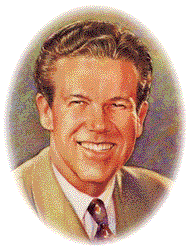The first five verses of what is referred to as Jesus’ Great Prayer or the High Priestly Prayer, that is recorded in John 17, goes on as follows and is unique because it publicly records what Jesus prayed for himself. He prays that God glorifies him now.
“These words spake Jesus, and lifted up his eyes to heaven, and said, Father, the hour is come; glorify thy Son, that thy Son also may glorify thee: As thou hast given him power over all flesh, that he should give eternal life to as many as thou hast given him. And this is life eternal, that they might know thee the only true God, and Jesus Christ, whom thou hast sent. I have glorified thee on the earth: I have finished the work which thou gavest me to do. And now, O Father, glorify thou me with thine own self with the glory which I had with thee before the world was.“
While on the surface this may seem to be kind of selfish, and seeking self-glorification, close scrutiny of this prayer, reveals certain hidden treasures; treasures of knowledge that reflect, in essence, who Jesus is.
Jesus started his prayer by looking up to the heaven, and addressing God as Father, stating the time had come. To his earthly mother, Jesus had stated that his time had not yet come (John 2:4), but now to His heavenly Father, Jesus is stating that his time had come. He then goes on to express, that it was God’s time to glorify Him, by saying “glorify thy Son that your Son may glorify you.” (John 17:1). Here Jesus expresses the fact that he is indeed the Only begotten beloved Son of God, in whom God was well pleased because his glory was to be a reflection of God’s glory.
Then Jesus states the power that had been granted unto him, by God the Father, who had sent him; power to save and deliver all who know God the Father and Him. Here he defines eternal life by saying that “Knowing God the Father as the one true God and knowing Jesus Christ” is eternal life. What does it mean to know God? The Bible says, whoever loves, knows God and is born of God (1 John 4:7-8) and he that loveth not, knoweth not God, for God is love. Jesus summed up the law of the prophets in Loving God and Loving Man. Eternal life comes by loving God (i.e., hating sin) above all else and it comes only by Him for there is no other name, under heaven among men, by which one can be saved (Acts 4:12). Here Jesus expresses the fact that He is not only the Son of God, but also the Savior of the world (John 17:3).
Then Jesus states that He had glorified God the Father, and finished the work (of Salvation) that had been entrusted unto him (John 17:4), and reasserts that God the Father now glorifies Him with God’s own glory, which He had with God, before the world began. By using the phrase, “glory which I had with thee before the world began” (John 17:5), Jesus expresses his Sovereignty making himself equal to God, which He rightfully was. Jesus had made himself of no reputation, considering equality with God, as a robbery before he had finished the work, that He had been entrusted to fulfill (Philippians 2:6-7). Now that the time had come, it was time for Jesus to be restored into his heavenly glory and hence his prayer.
Points to ponder:
Do you know Jesus Christ as the Son of God?
Is Jesus Christ your Savior?
Is Jesus Christ your Sovereign King?
John 17:1-5 (KJV)
1 These words spake Jesus, and lifted up his eyes to heaven, and said, Father, the hour is come; glorify thy Son, that thy Son also may glorify thee:
2 As thou hast given him power over all flesh, that he should give eternal life to as many as thou hast given him.
3 And this is life eternal, that they might know thee the only true God, and Jesus Christ, whom thou hast sent.
4 I have glorified thee on the earth: I have finished the work which thou gavest me to do.
5 And now, O Father, glorify thou me with thine own self with the glory which I had with thee before the world was.


